 Mohammed Njie envisions a future in which all of Africa has access to reliable, affordable, clean energy in his lifetime. Since his first day at the Hunt Institute, he has been working to make this vision a reality, starting with his home country of The Gambia. Mohammed developed a plan with the help of the Hunt Institute team. During that process, Mohammed founded Janta Energy, a social enterprise, with the goal of bringing clean, reliable energy to The Gambia. Like all great ideas, he needed a pilot project to test his hypothesis that rural schools could be fully functional with solar panels because the majority of their meeting time is during daylight hours. The pilot has the panels connected to batteries for evening classroom access. The long-term goal is to include fuel cells when the technology advances enough to offer an affordable option.
Mohammed Njie envisions a future in which all of Africa has access to reliable, affordable, clean energy in his lifetime. Since his first day at the Hunt Institute, he has been working to make this vision a reality, starting with his home country of The Gambia. Mohammed developed a plan with the help of the Hunt Institute team. During that process, Mohammed founded Janta Energy, a social enterprise, with the goal of bringing clean, reliable energy to The Gambia. Like all great ideas, he needed a pilot project to test his hypothesis that rural schools could be fully functional with solar panels because the majority of their meeting time is during daylight hours. The pilot has the panels connected to batteries for evening classroom access. The long-term goal is to include fuel cells when the technology advances enough to offer an affordable option.
After securing permission from the Minister of Energy for The Gambia and local leadership in Tintinto, the team installed the technology needed to illuminate 50% of Tintinto Primary and Secondary School. During Janta’s pilot project, the team was able to pull data from the school’s energy use and excess, evaluating capacity in planning what should be installed to complete the project. After a year of use, based on the findings, the technology has proven that it will be a viable solution going forward.
In the spring semester of 2021, the student employees’ goal was to raise the remaining money needed to finish the pilot; they called it the “Illuminating Tintinto” project and submitted it to the SMU Giving Day roster. Through their hard work, they spread the word to generous donors who donated to complete the project. Now 100% of the Tintinto Primary and Secondary School will be powered by solar panels. Access to electricity will make available an entirely new learning environment, providing tools for teachers to use to enhance the learning experience of students in Tintinto.
In response to the generous donations made to support his pilot project, Mohammed said, “This is amazing. We are one step closer to making the dreams and hopes of the students in Tintinto village a reality. Progress and sustainability are possible through education, and energy access makes education a limitless experience for students. I am very excited about the future of Tintinto village, its students, and its people.”
With the knowledge and experience gained through this process, Mohammed intends on scaling Janta. By replicating the same technology, he plans to continue using local resources and labor to outfit other schools, eventually expanding the idea for use in rural hospitals in his pursuit to bring clean energy to all of The Gambia.
We, the team at the Hunt Institute, would like to thank all the supporters supporting the group of student employees determined to help Illuminate Tintinto. We are excited to see the progress that Mohammed Njie is making and are proud of the student employees that embody our university motto, “World Changers Shaped Here.”
Many of our supporters have long been by our side, some are new friends, and still, others are our very own SMU Alumni that worked in the Institute and returned to once again aid in our impact. Thank you!
To read more about the Hunt Institute’s work to develop future-focused solutions to some of the world’s biggest problems, please click here. For the latest news on the Hunt Institute, follow our social media accounts on LinkedIn, Facebook, and Instagram. We invite you to listen to our Podcast called Sages & Seekers. If you are considering engaging with the institute, you can donate, or sign-up for our newsletter by emailing huntinstitute@smu.edu.






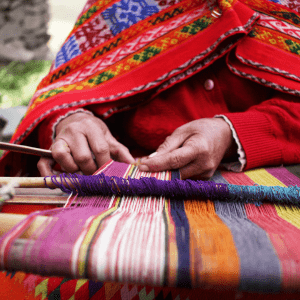

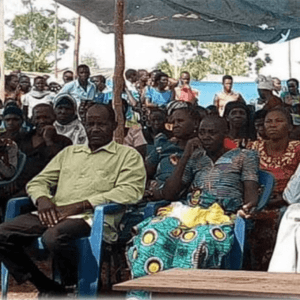



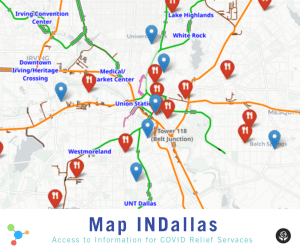
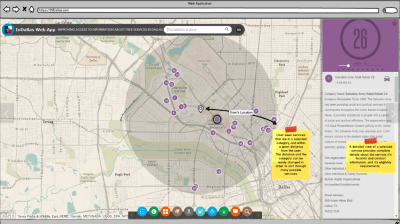



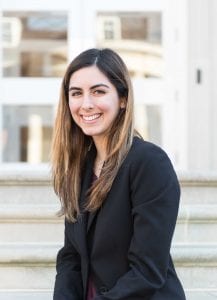 Silvia Rivera is the definition of a world changer. Since joining the Hunt Institute for Engineering and Humanity as a student analyst, Rivera has conducted research on artisan entrepreneurship and inclusive economic development. Rivera recently returned from Washington, D.C. after participating in “The Creative Economy Matters,” a conference hosted by the
Silvia Rivera is the definition of a world changer. Since joining the Hunt Institute for Engineering and Humanity as a student analyst, Rivera has conducted research on artisan entrepreneurship and inclusive economic development. Rivera recently returned from Washington, D.C. after participating in “The Creative Economy Matters,” a conference hosted by the